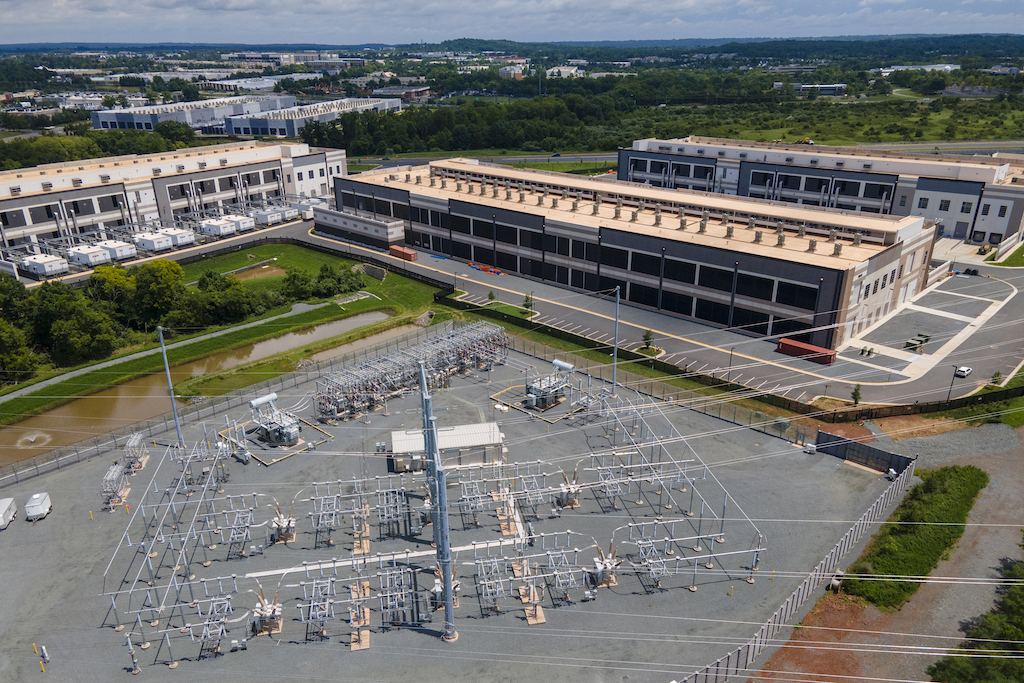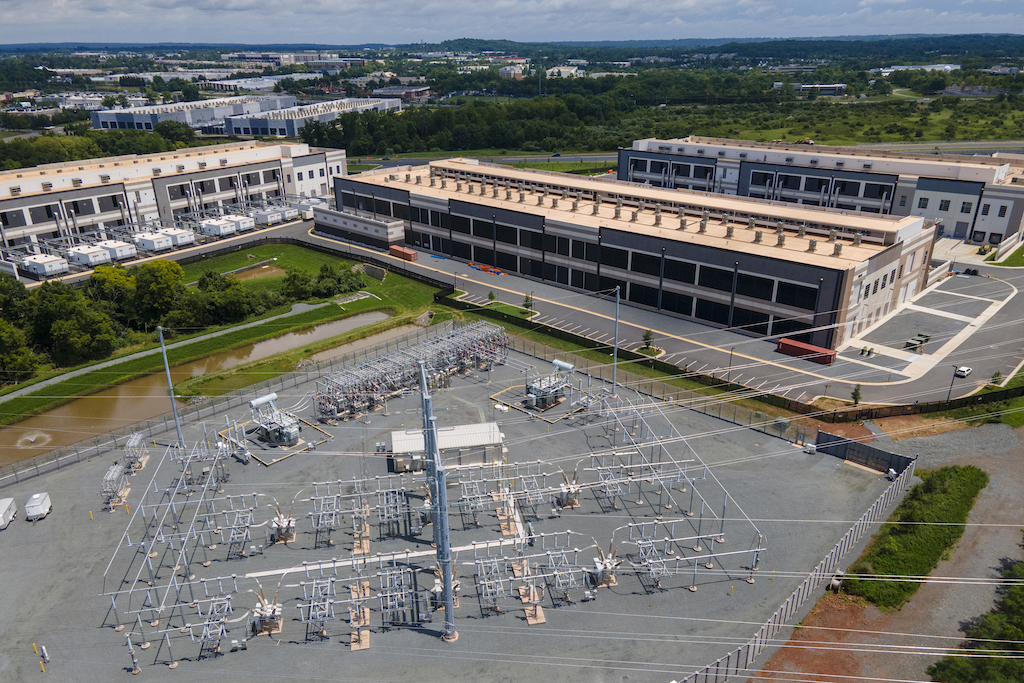“Montana’s tech landscape is on the cusp of a significant transformation. As the state’s data centers continue to grow in importance, a new wave of legislation is poised to provide a supportive framework for their development. Meanwhile, the evolving nature of blockchain technology is set to have far-reaching implications for various industries and stakeholders. Recent proposals from legislators aim to address these emerging trends head-on, paving the way for a future where data centers and blockchain technology can thrive in the Treasure State.”
The Allure of Data Centers

States are competing to attract data centers with massive subsidies, despite concerns over energy consumption and job creation.
State Sen. Norm Needleman championed the 2021 legislation designed to lure major data centers to Connecticut. The Democratic lawmaker hoped to better compete with nearby states, bring in a growing industry, and provide paychecks for workers tasked with building the sprawling server farms. But this legislative session, he’s wondering if those tax breaks are appropriate for all data centers, especially those with the potential to disrupt the state’s clean energy supply.
Particularly concerning to him are plans for a mega data center on the site of the state’s only nuclear power plant. The developer is proposing an arrangement that would give it priority access to electricity generated at the plant, which would mean less carbon-free power for other users.
“That affects our climate goals,” he said. “It’s additional demand of renewable energy that we would have to replace.”
Needleman, co-chair of the Senate Energy and Technology Committee, is now reconsidering details of the state incentive program as he works on legislation to study the impact of data centers on the state’s electric grid.
Mistakes now, he said, could lead to “a real crisis.”
Data Centers: The Backbone of the Digital World
Data centers are the backbone of the increasingly digital world, and they consume a growing share of the nation’s electricity, with no signs of slowing down.
The global consultancy McKinsey & Company predicts these operations will double their U.S. electric demands from 17 gigawatts in 2022 to 35 gigawatts by 2030 — enough electricity to power more than 26 million average homes.
Some states, including Maryland and Mississippi, continue to pursue incentives to land new data centers. But in other states, the growth of the industry is raising alarms over the reliability and affordability of local electric grids, and fears that utilities will meet the demand by leaning more heavily on fossil fuel generation rather than renewables.
Reassessing Incentives
State legislators are questioning the wisdom of tax breaks and preferential electric rates for data centers, citing concerns over reliability and affordability of local electric grids.
In South Carolina, lawmakers have started to question whether these massive power users should continue to receive tax breaks and preferential electric rates.
In Virginia, home to the world’s largest concentration of data centers, a legislative study is underway to learn more about how those operations are affecting electric reliability and affordability.
And Georgia lawmakers just passed legislation that would halt the state’s tax incentives for new data centers for two years.
Georgia is home to more than 50 data centers, including those supporting AT&T, Google and UPS, according to the state commerce department.
Georgia Republican state Sen. John Albers, a sponsor of the Senate bill, said the significant growth of data centers in his state has helped communities and schools by boosting property tax revenues.
But, considering factors such as water and electric use, he said the return on the state’s investment “is not there” and that “initial findings do not support credits from the state level.”
Nationwide, data center subsidies were costing state and local governments about $2 million per job created, according to a 2016 study by Good Jobs First, a nonprofit watchdog group that tracks economic development incentives.
That figure has certainly ballooned since then, as the number of data centers has grown exponentially, along with their energy demands.
Legislative Reactions and Concerns
State legislators are rethinking their posture as they consider how to cope with the growing electricity demand and potential disruption to clean energy supply.
In South Carolina, lawmakers have started to question whether these massive power users should continue to receive tax breaks and preferential electric rates.
In Virginia, home to the world’s largest concentration of data centers, a legislative study is underway to learn more about how those operations are affecting electric reliability and affordability.
And Georgia lawmakers just passed legislation that would halt the state’s tax incentives for new data centers for two years.
Georgia is home to more than 50 data centers, including those supporting AT&T, Google and UPS, according to the state commerce department.
Georgia Republican state Sen. John Albers, a sponsor of the Senate bill, said the significant growth of data centers in his state has helped communities and schools by boosting property tax revenues.
But, considering factors such as water and electric use, he said the return on the state’s investment “is not there” and that “initial findings do not support credits from the state level.”
Nationwide, data center subsidies were costing state and local governments about $2 million per job created, according to a 2016 study by Good Jobs First, a nonprofit watchdog group that tracks economic development incentives.
That figure has certainly ballooned since then, as the number of data centers has grown exponentially, along with their energy demands.
States Taking Action
Legislators in several states are taking a closer look at the impact of data centers on their local electric grids, with some introducing legislation to study the issue or halt tax incentives.
In Georgia, lawmakers have passed a bill to halt the state’s tax incentives for new data centers for two years, citing concerns over the demand for electricity and the potential impact on the state’s clean energy supply.
In Virginia, a legislative study is underway to learn more about how data centers are affecting electric reliability and affordability, while in South Carolina, lawmakers are questioning whether data centers should continue to receive tax breaks and preferential electric rates.
Connecticut lawmakers are also reevaluating their data center incentive program, with concerns over the potential impact on the state’s clean energy goals and the need for more careful consideration of the environmental and economic implications of data centers.
Blockchain Regulation Across the States
The lack of a federal regulatory framework for digital assets has led to a patchwork of state-by-state regulation, with each state developing its own laws and regulations for cryptocurrency and blockchain technology.
Alabama
Cryptocurrency is encompassed in existing money transmission statutes in Alabama, with Ala. Code § 8-7A-2 defining monetary value as “A medium of exchange, including virtual or fiat currencies, whether or not redeemable in money.”
Alaska
Alaska has no cryptocurrency-specific laws, but cryptocurrency is encompassed in existing money transmission statutes, with Alaska Stat. § 06.55.990 defining monetary value as “a medium of exchange, whether or not redeemable in money.”
Arizona
Arizona has three statutes relating to blockchain, including AZ Rev Stat § 44-7061, which defines blockchain technology and smart contract, and AZ Rev Stat § 11-269.22, which prohibits counties from restricting individuals from running nodes on blockchain technology in their residences.
- Major cryptocurrency exchanges Coinbase, Binance, and Gemini have all registered as money transmitters in Arizona.
- Arizona has a framework under its securities laws for “crowdfunding or virtual coin offerings,” with AZ Rev Stat § 44-1801 and AZ Rev Stat § 44-1844.
Implications and Analysis
The significant cost of data center subsidies to state and local governments, with some estimates suggesting $2 million per job created, has raised concerns over the long-term sustainability of these incentives.
The need for careful consideration of the environmental and economic implications of data centers and blockchain technology is essential, and legislation can play a critical role in shaping their growth.
In the case of data centers, the growing demand for electricity is a major concern, with the global consultancy McKinsey & Company predicting that these operations will double their U.S. electric demands from 17 gigawatts in 2022 to 35 gigawatts by 2030.
The role of legislation in shaping the growth of data centers and blockchain technology is critical, with lawmakers needing to balance the needs of these industries with the need to protect the environment and ensure the long-term sustainability of these incentives.
Conclusion
As discussed in the article “Legislators propose bills to back data centers, legislate blockchain technology – Daily Montanan,” Montana lawmakers are taking steps to position the state as a hub for data centers and blockchain technology. Key proposals include bills that aim to exempt data center electrical usage from public utility taxation and establish regulations for the growing blockchain industry. These measures are designed to attract businesses and talent to the region, creating jobs and stimulating economic growth.
The significance of these developments cannot be overstated, as they have far-reaching implications for Montana’s economic future. By supporting data centers and blockchain technology, the state can establish itself as a leader in innovation and technological advancement. This, in turn, can lead to increased investment, job creation, and a higher standard of living for residents. Moreover, these initiatives can also foster a culture of entrepreneurship and innovation, driving growth and competitiveness in the region.
As Montana lawmakers move forward with these proposals, it is clear that the state is poised to take a significant step forward in its economic development. With the potential for increased investment, job creation, and innovation, the future looks bright for Montana. As the state continues to evolve and grow, one thing is certain: the path forward will be shaped by the decisions made today, and the choices we make will determine the course of our economic destiny.
